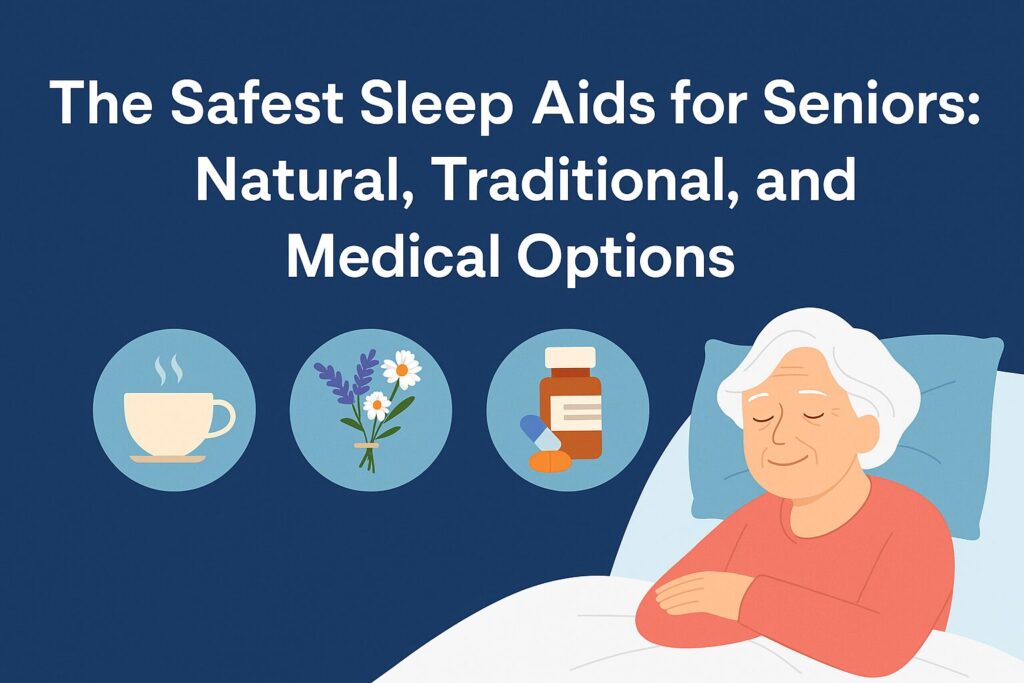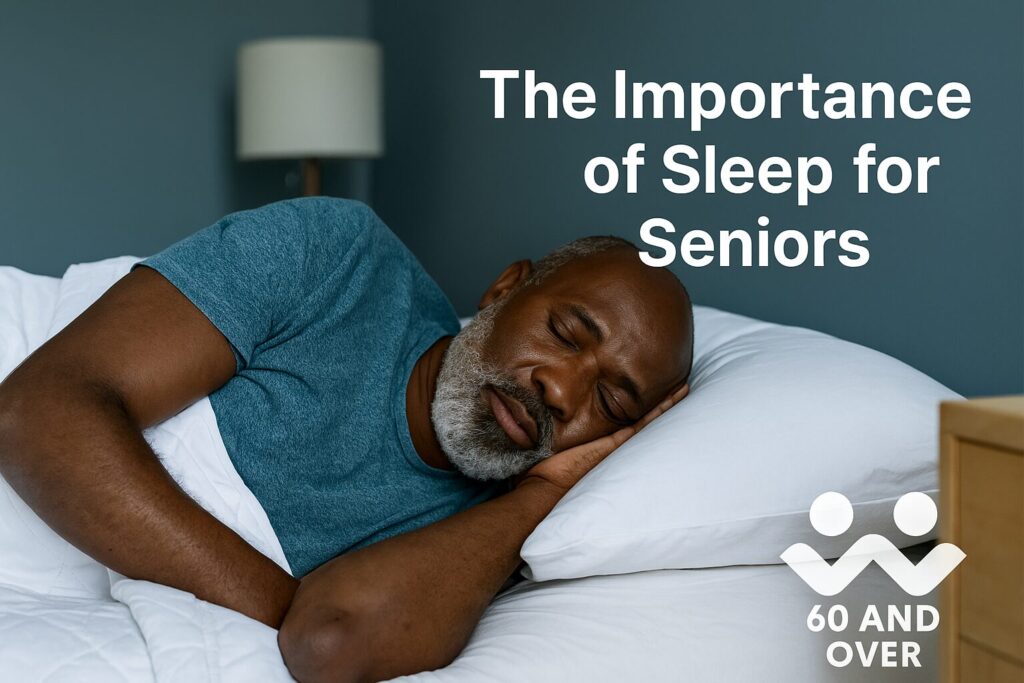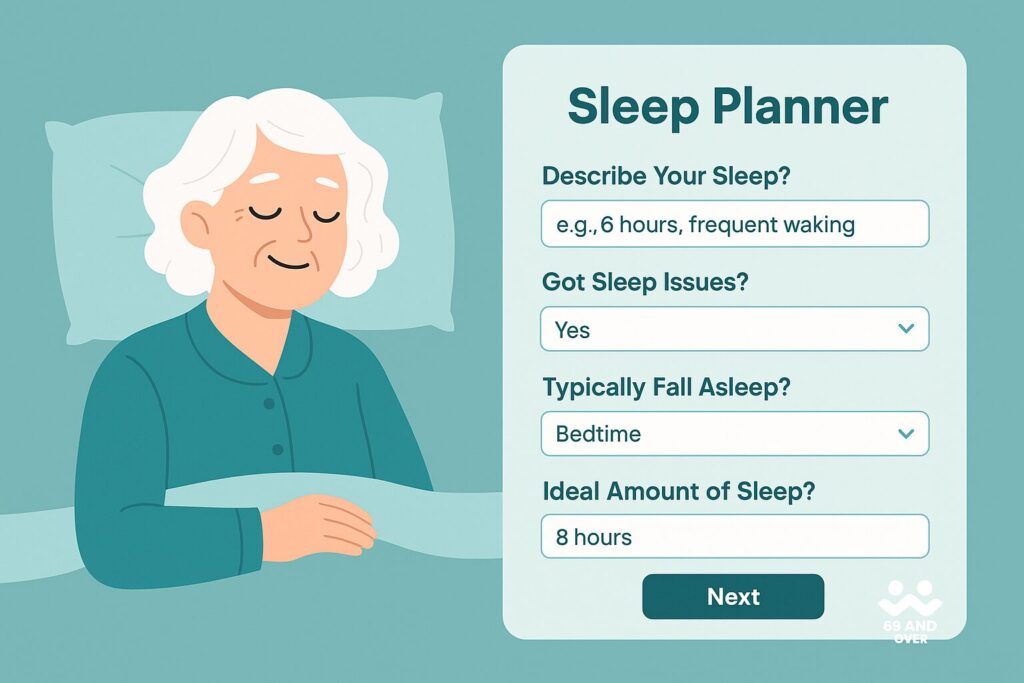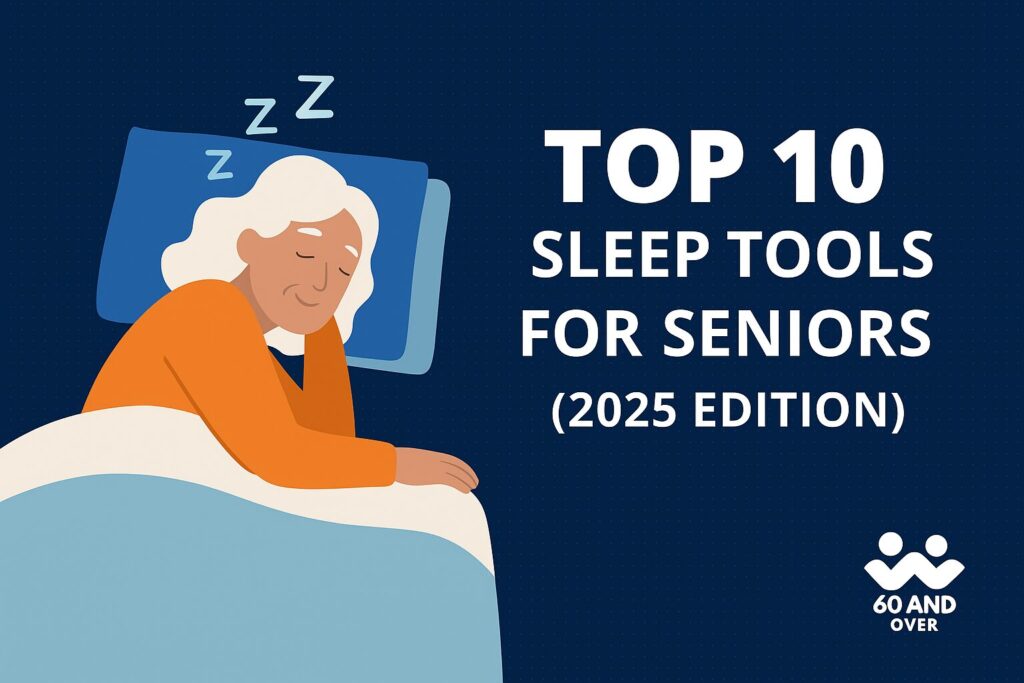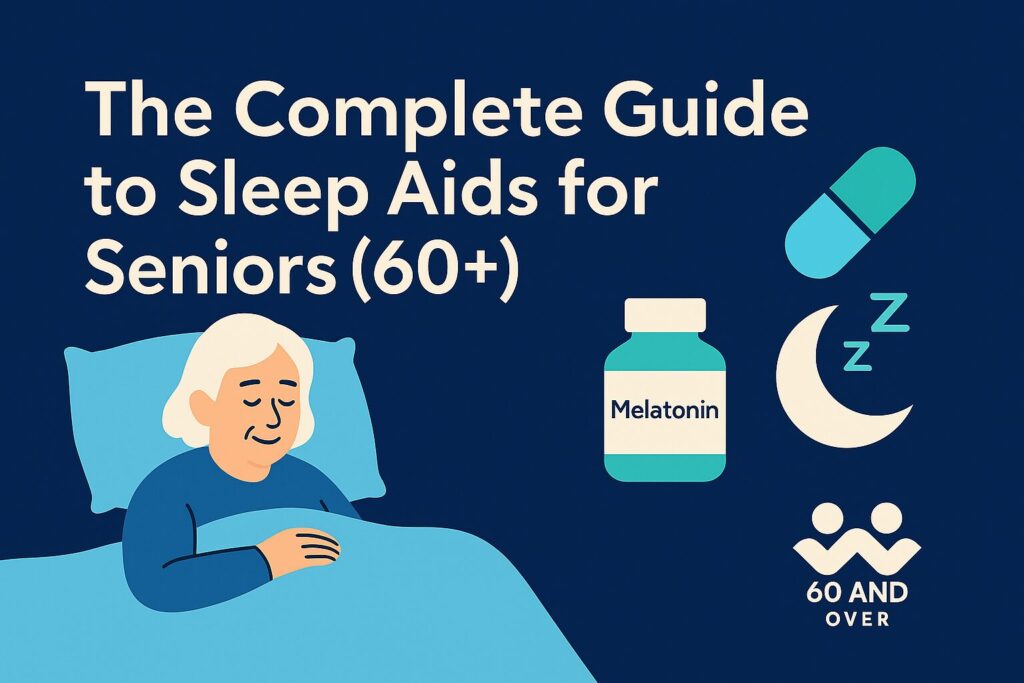Sleep difficulties are common among seniors, and while occasional restless nights are normal, persistent problems can harm physical health, mood, and memory. After 60, the body’s sleep cycle naturally changes, but that doesn’t mean seniors should accept poor rest as inevitable. The key is finding solutions that are safe, effective, and tailored to older adults. This article explores the safest sleep aids for seniors, ranging from natural remedies and supportive products to prescription medications, while highlighting options worth avoiding.
Why Seniors Struggle With Sleep
Sleep changes with age, and seniors often experience lighter, shorter sleep cycles. Conditions such as arthritis, diabetes, or menopause can lead to discomfort that makes rest difficult. Medications also play a role, since many prescriptions have side effects that interfere with sleep. On top of that, retirement may disrupt routines, leading to inconsistent bedtimes and naps that throw off the body clock. These overlapping issues make sleep challenges common after 60, but they also highlight why safe, senior-specific solutions are needed.
6 Popular Safe Sleep Aid for The Elderly
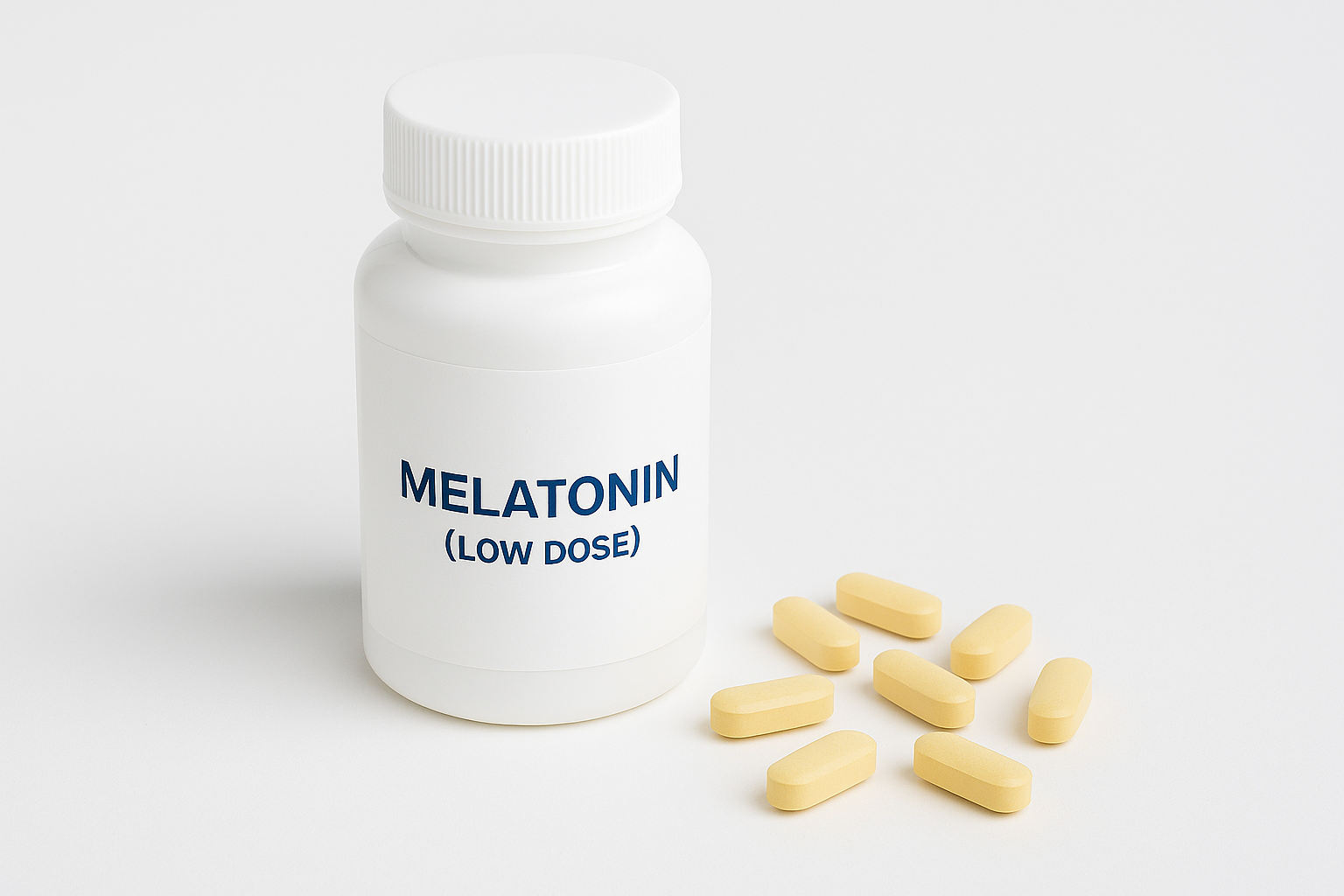
Melatonin (Low Dose)
Gentle support for regulating sleep timing; start with the lowest effective dose to avoid grogginess.
View on Amazon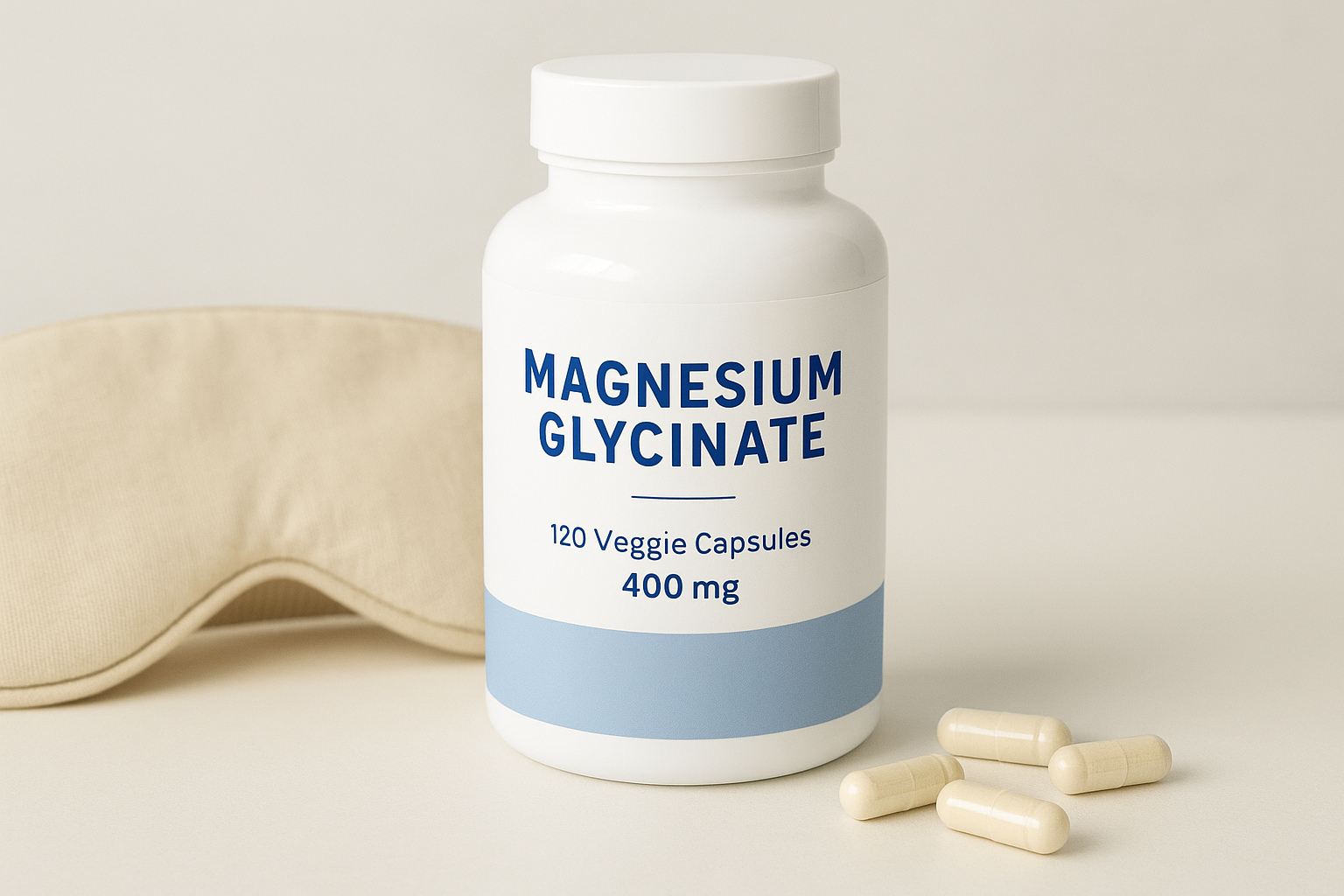
Magnesium Glycinate
Highly absorbable form of magnesium that helps muscles relax and supports deeper sleep.
View on Amazon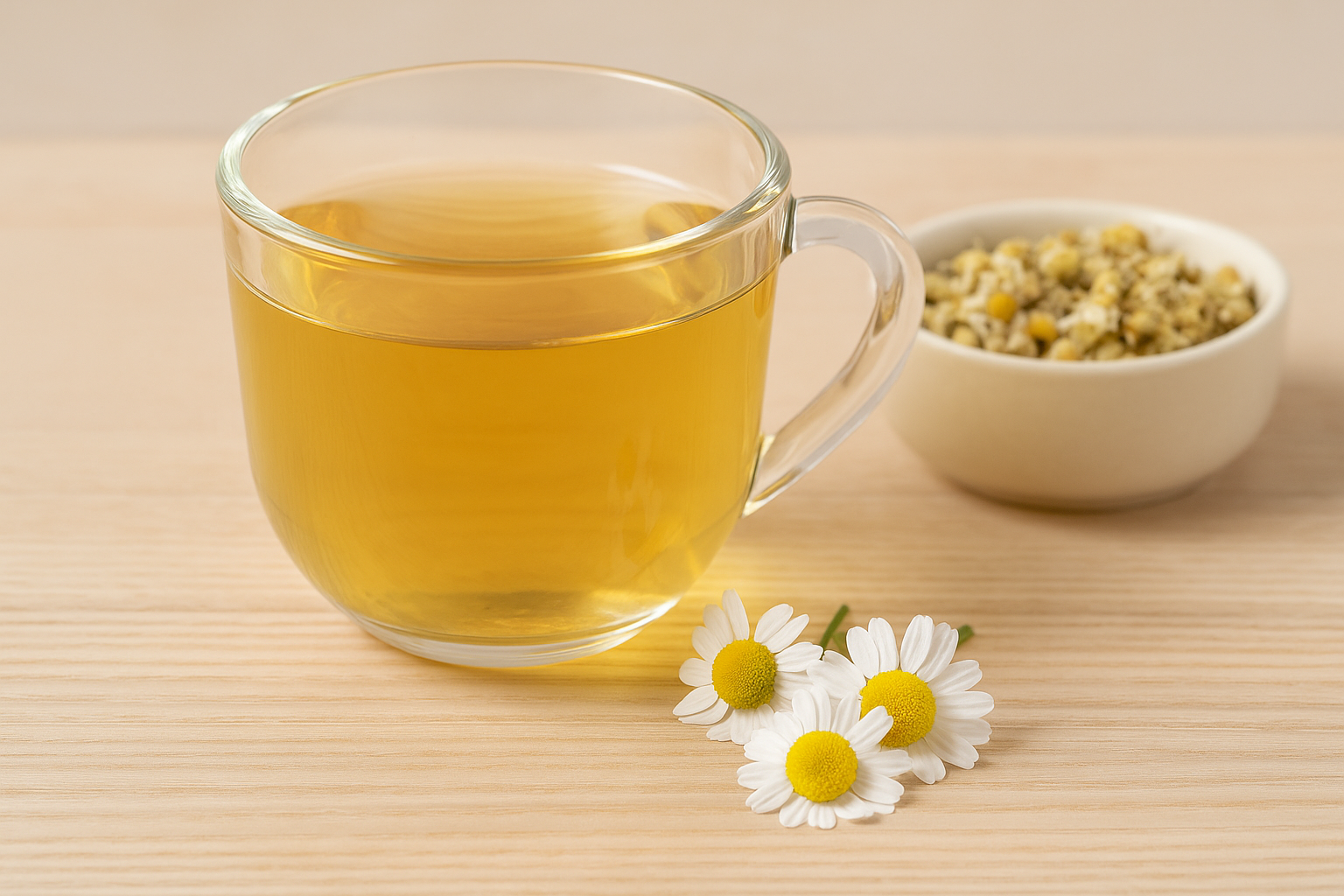
Chamomile Tea
A gentle herbal tea known for its calming properties — safe for nightly routines.
View on Amazon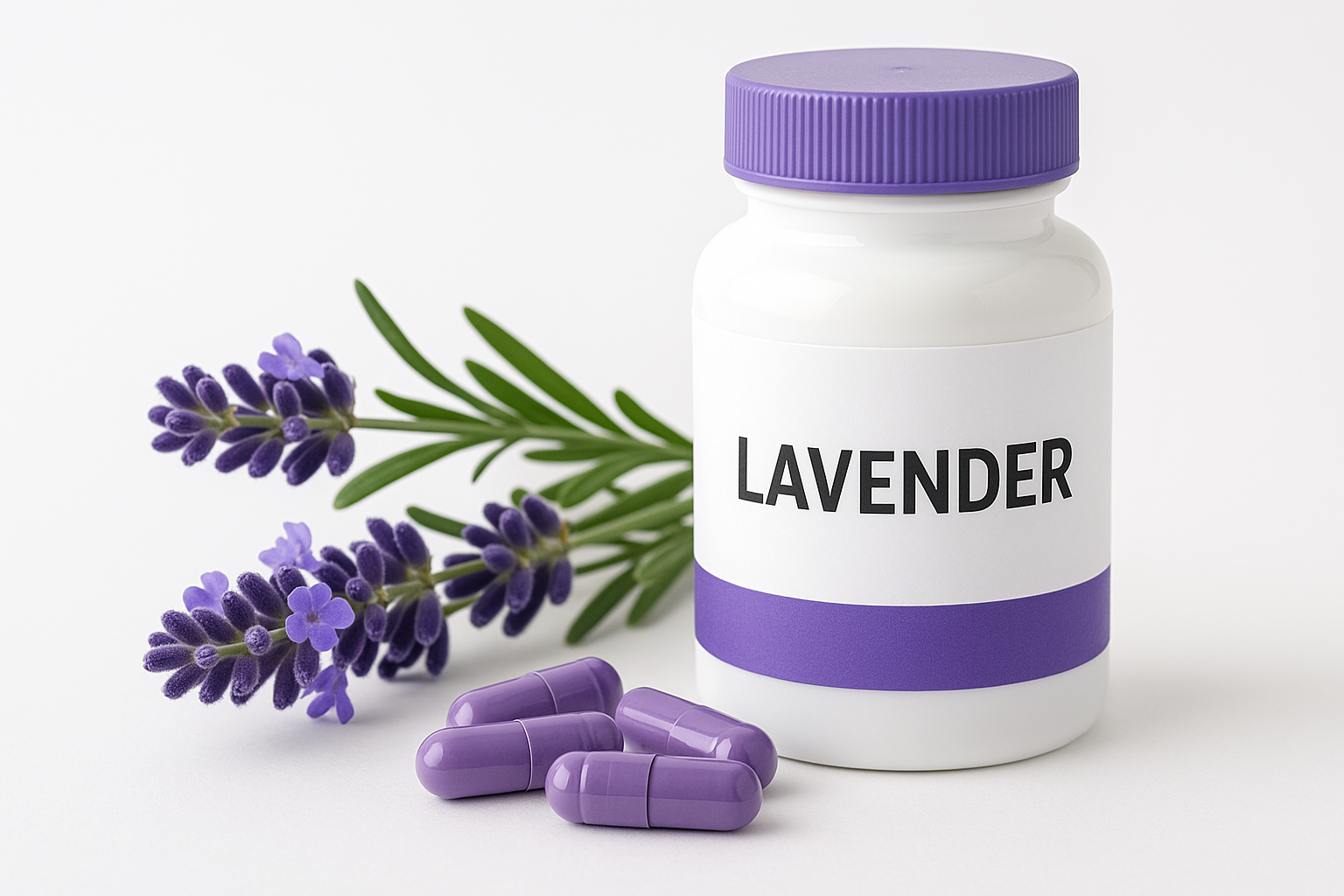
Lavender (Capsules/Aromatherapy)
A soothing botanical that reduces pre-sleep stress, available as oil or capsules.
View on Amazon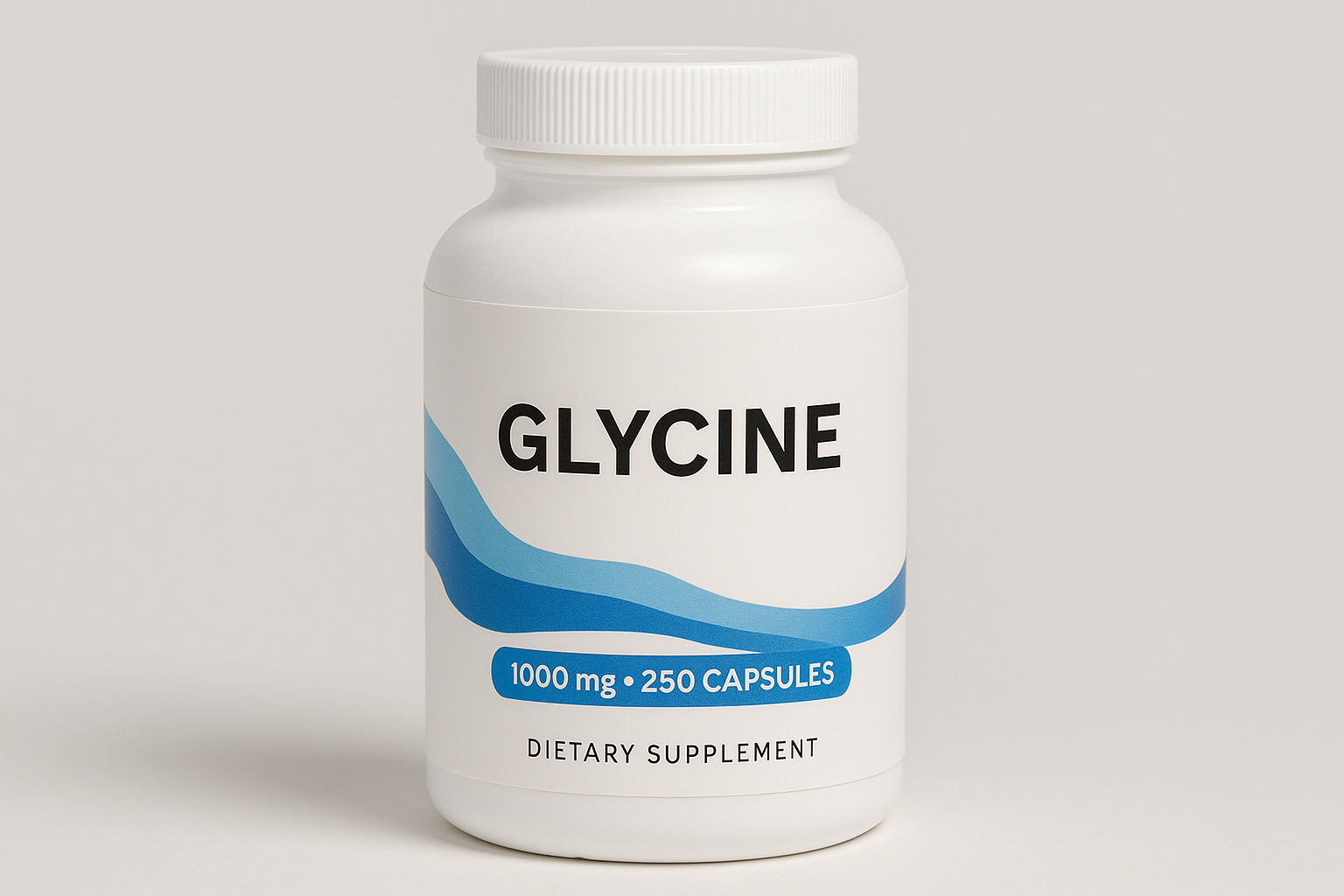
Glycine
An amino acid that helps cool the body and improve sleep efficiency — often taken as powder.
View on Amazon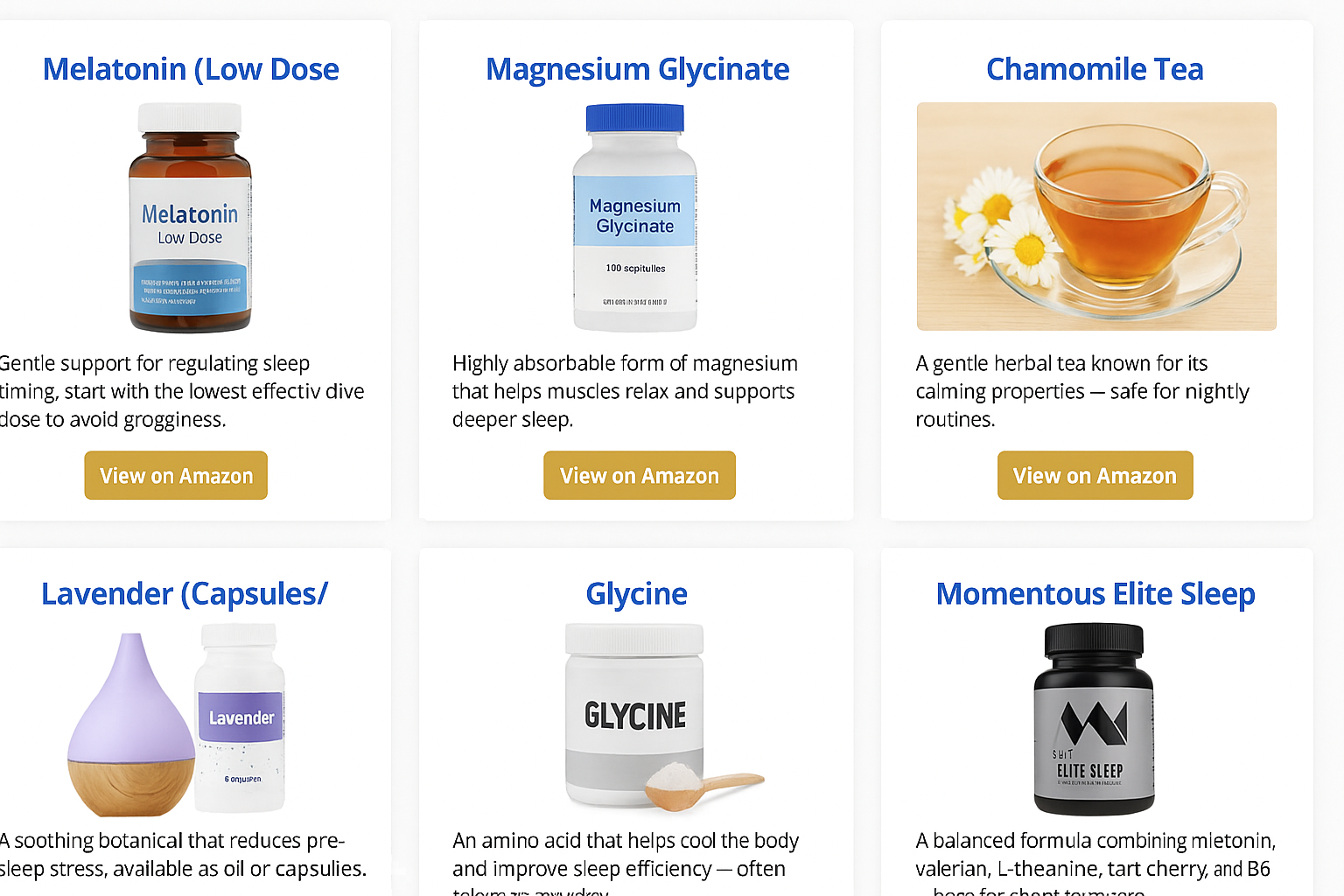
Momentous Elite Sleep
A balanced formula combining melatonin, valerian, L-theanine, tart cherry, and B6 — best for short-term use.
View on AmazonSafe First-Line Approaches (Non-Medication)
Lifestyle and Environment
The first step toward better sleep doesn’t involve pills — it’s about building habits and creating a restful environment. Seniors benefit from consistent bedtimes, reduced caffeine late in the day, and exposure to natural light in the morning. A cool, quiet, and dark bedroom can improve rest dramatically. Many find that a sunrise alarm clock helps regulate circadian rhythms by simulating natural light in the morning. See Our Review → Sunrise Alarm Clock
Natural Remedies
Natural options are often the safest sleep aids for seniors. Chamomile tea, for example, has long been used for relaxation and remains a gentle, widely trusted choice. Melatonin, when taken in low doses, can help reset the body’s sleep-wake cycle, though it should be used carefully. Lavender aromatherapy is another well-studied aid, calming the nervous system and reducing bedtime stress. These solutions avoid the risks tied to medications, making them excellent first-line options. See Our Review → Chamomile Sleep Tea | See Our Review → Low-Dose Melatonin | See Our Review → Lavender Diffuser Kit
Sleep Products That Work
Supportive products can help seniors create a more restful environment without turning to medication. Weighted blankets provide gentle pressure that reduces nighttime anxiety and promotes calmness. White noise machines block disruptive sounds, which is especially useful in apartments or noisy neighborhoods. Orthopedic pillows keep the spine aligned and reduce neck or back pain. Each of these items addresses a different part of the sleep experience, offering safe, non-drug ways to improve rest. See Our Review → Weighted Blanket | See Our Review → White Noise Machine | [See Our Review → Orthopedic Pillow
Traditional Sleep Aids for the Elderly
For decades, many older adults relied on traditional sleep aids such as alcohol, herbal tonics, or over-the-counter antihistamines. While these may have provided temporary relief, they come with significant risks. Alcohol disrupts sleep cycles and increases fall risk, while sedating antihistamines can cause confusion, constipation, and grogginess the next day. What once seemed harmless is now widely considered unsafe. Seniors should understand that although these traditional remedies are familiar, safer and more effective alternatives are available.
Prescription Options & Safety
Safer Prescription Medications
Some seniors may still require prescription medications, especially when natural remedies and lifestyle adjustments aren’t enough. Safer options include low-dose doxepin, melatonin receptor agonists, or certain antidepressants prescribed in very small doses. These are generally better tolerated by older adults and have fewer side effects compared to stronger sedatives. However, even these medications must be closely monitored, as seniors are more sensitive to drug effects and interactions. Consultation with a healthcare provider is always essential before starting or adjusting any prescription sleep aid.
Sleeping Pills That Carry Risks
Not all medications are equal, and some should be approached with extreme caution. Benzodiazepines such as temazepam or lorazepam, as well as so-called “Z-drugs” like zolpidem (Ambien), may increase the risk of falls, memory problems, and dependence. For this reason, they are rarely considered the safest sleeping pills for seniors. In many cases, the risks outweigh the benefits, especially if safer options are available. Seniors and caregivers should discuss these concerns openly with doctors and explore alternatives before considering these higher-risk medications.
Gender Considerations
Women over 60 often experience unique sleep challenges tied to hormonal changes, including hot flashes, night sweats, and mood shifts. Because of this, certain products and approaches may be more effective. Cooling pillows and breathable bedding can reduce overheating at night, while weighted eye masks promote relaxation. Herbal remedies such as chamomile or lavender may also help manage stress and tension. Recognizing these gender-specific differences allows seniors to choose sleep aids that address their individual needs. See Our Review → Cooling Pillow | See Our Review → Weighted Eye Mask
Recommended Sleep Aids for Seniors in 2025
Based on safety, effectiveness, and ease of use, here are some of the most recommended sleep aids for seniors today:
- Best Herbal Aid: Chamomile Tea – gentle, natural, and effective.
- Best Supplement: Low-Dose Melatonin – helps reset sleep cycles.
- Best Comfort Product: Weighted Blanket – reduces stress and nighttime restlessness.
- Best Device: White Noise Machine – blocks out unwanted sounds.
These products are accessible, affordable, and generally safe when used properly. For added trust, seniors should always discuss supplements or medications with a doctor before use. See Our Review → Full Sleep Aid Roundup] (coming soon)
6 Non Medication Sleep Aids for Seniors over 60
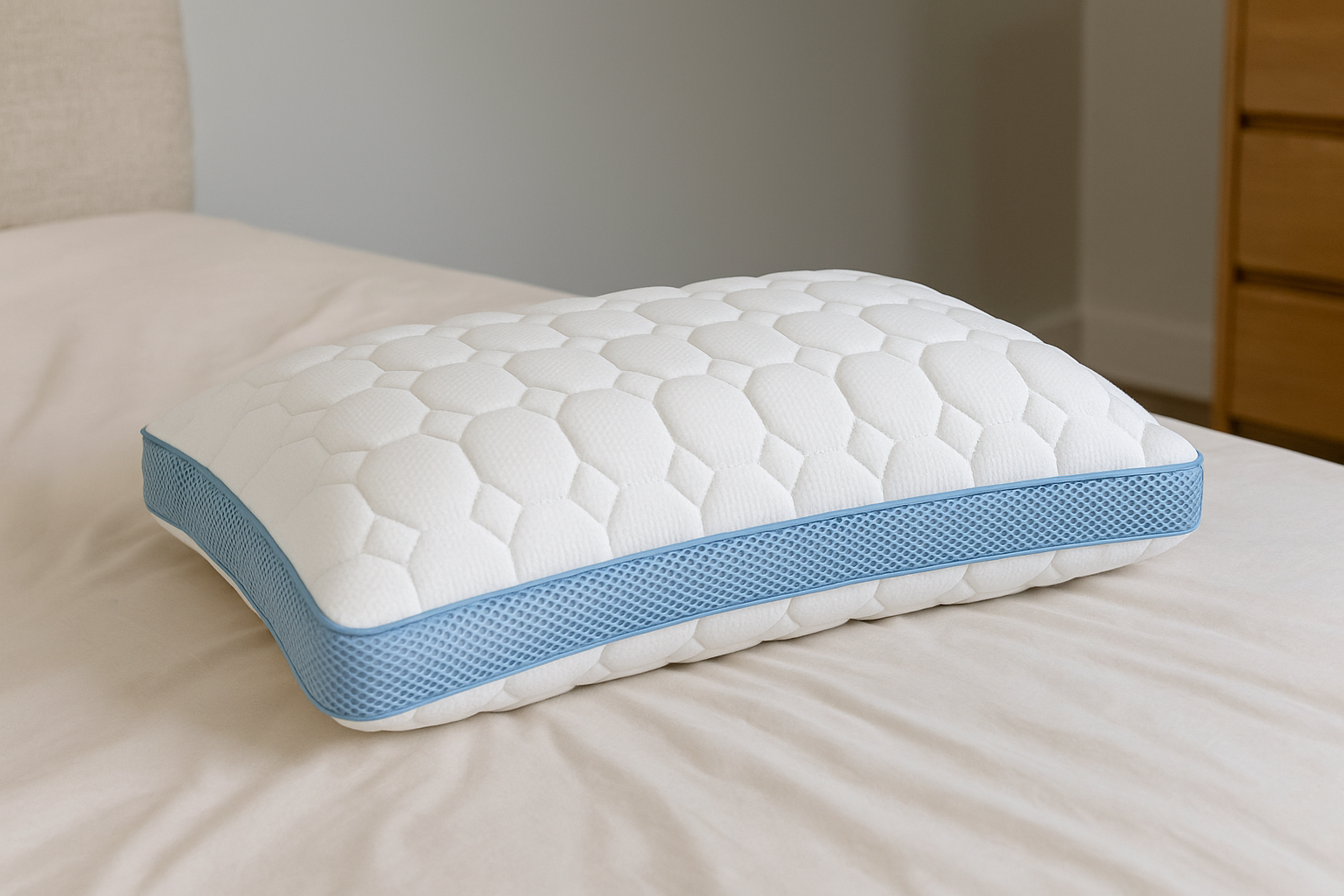
Cooling Pillow
Designed to regulate temperature and prevent night sweats, keeping sleep comfortable and uninterrupted.
View on Amazon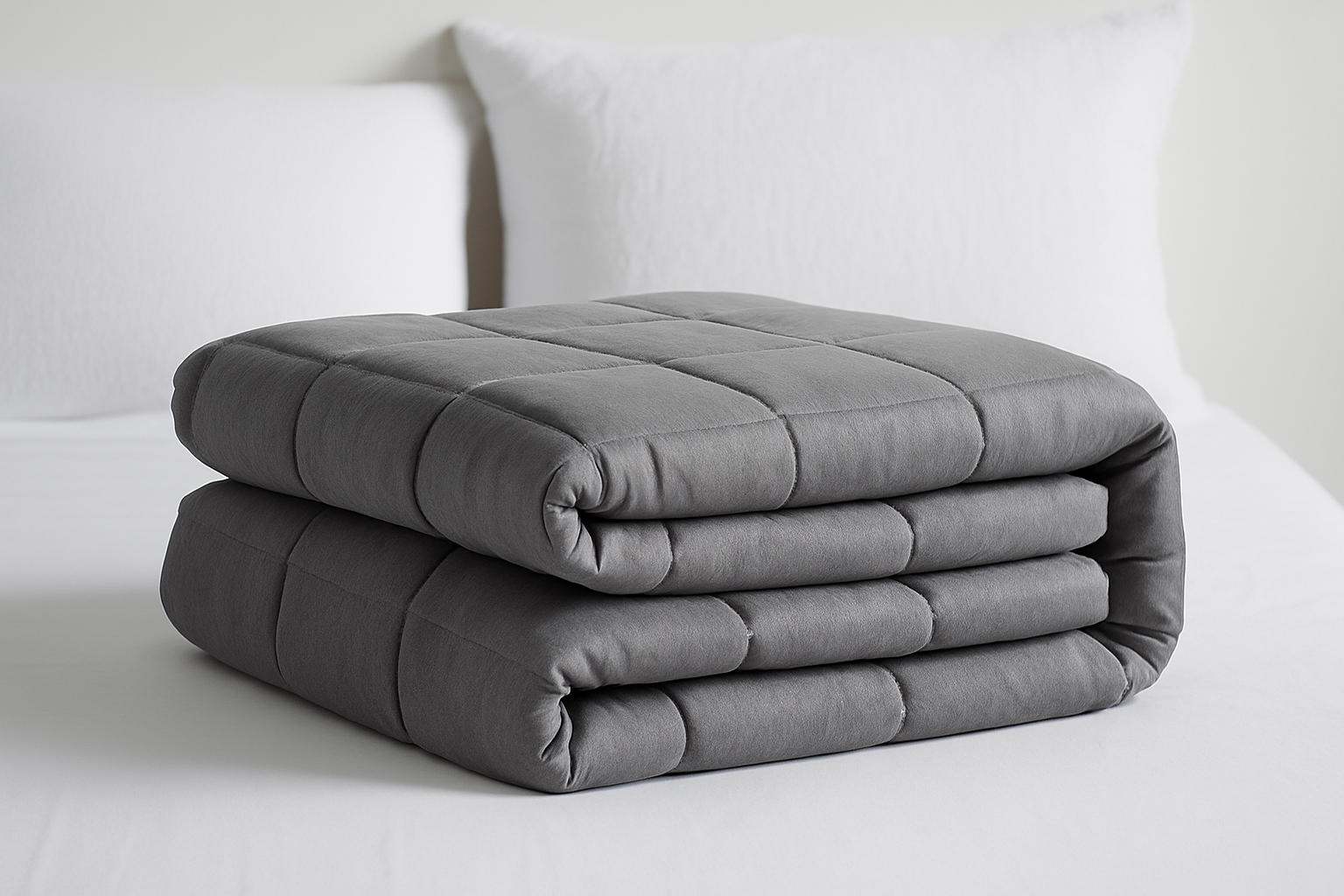
Weighted Blanket
Gentle pressure can calm the nervous system and improve sleep quality without medication.
View on Amazon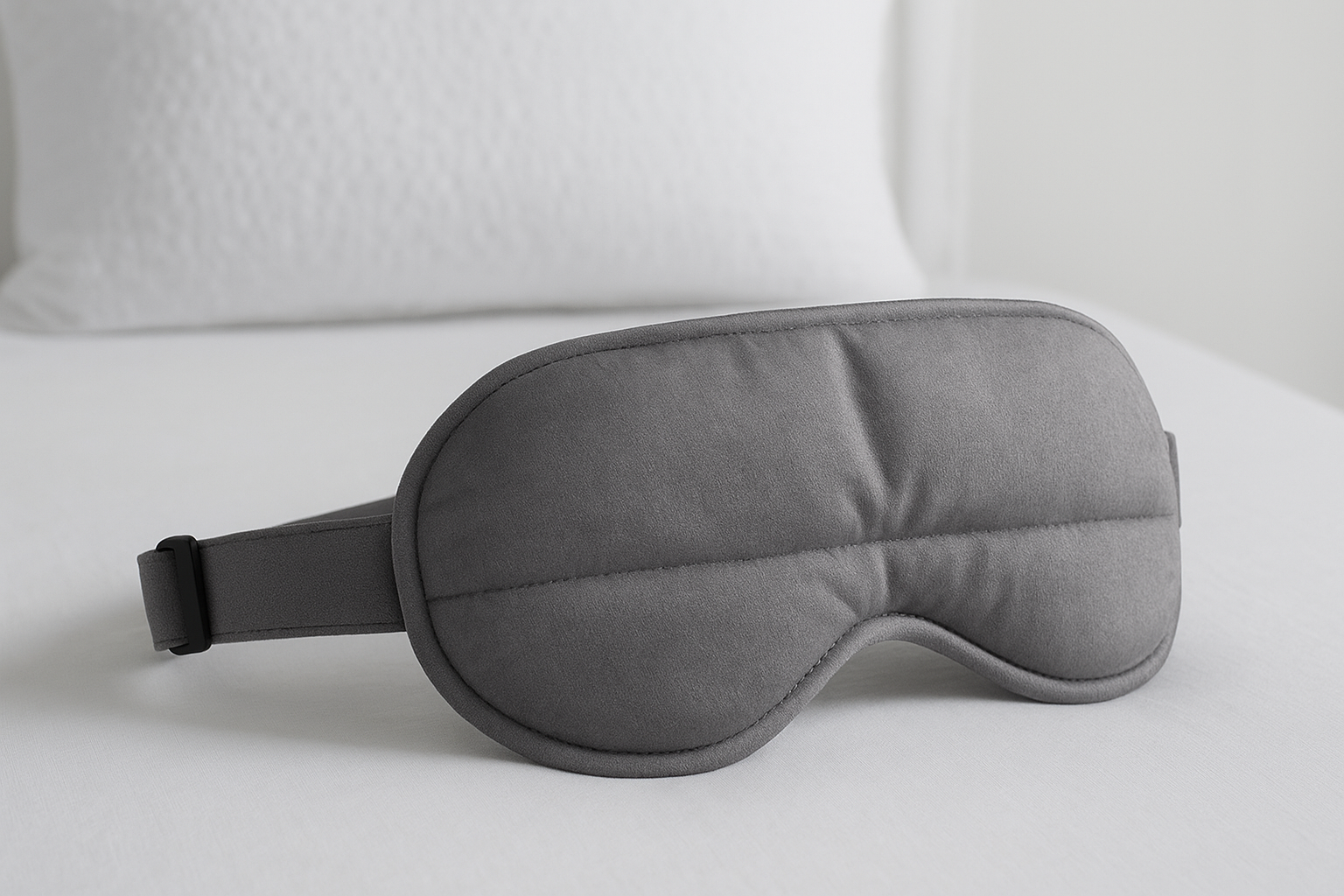
Weighted Eye Mask
Combines darkness with light pressure around the eyes to encourage deeper relaxation and quicker sleep.
View on Amazon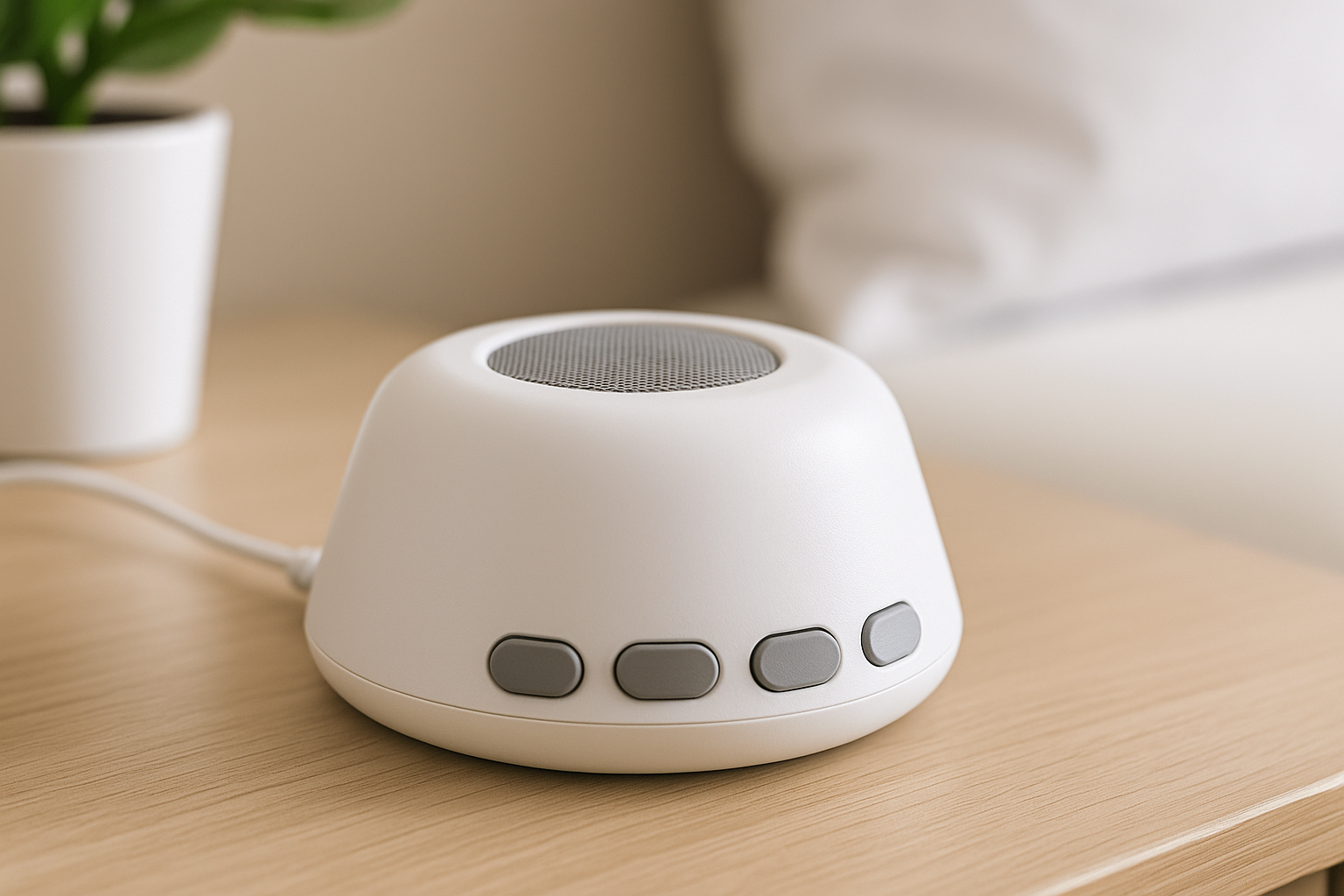
White Noise Machine
Blocks disruptive noises and creates a calming background sound environment ideal for seniors in busy areas.
View on Amazon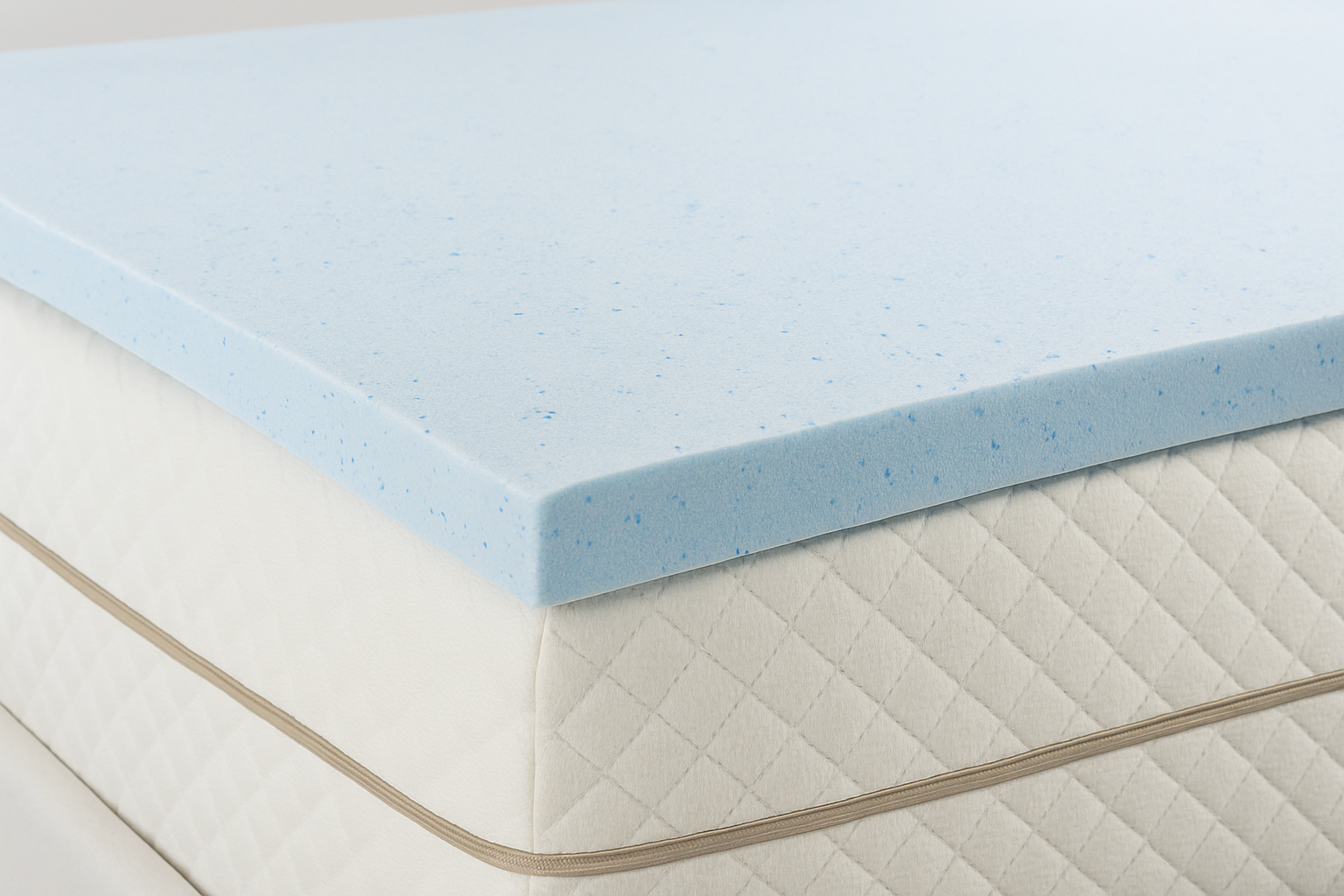
Memory Foam Mattress Topper
Adds comfort and support to an existing mattress, reducing pressure points and improving sleep posture.
View on Amazon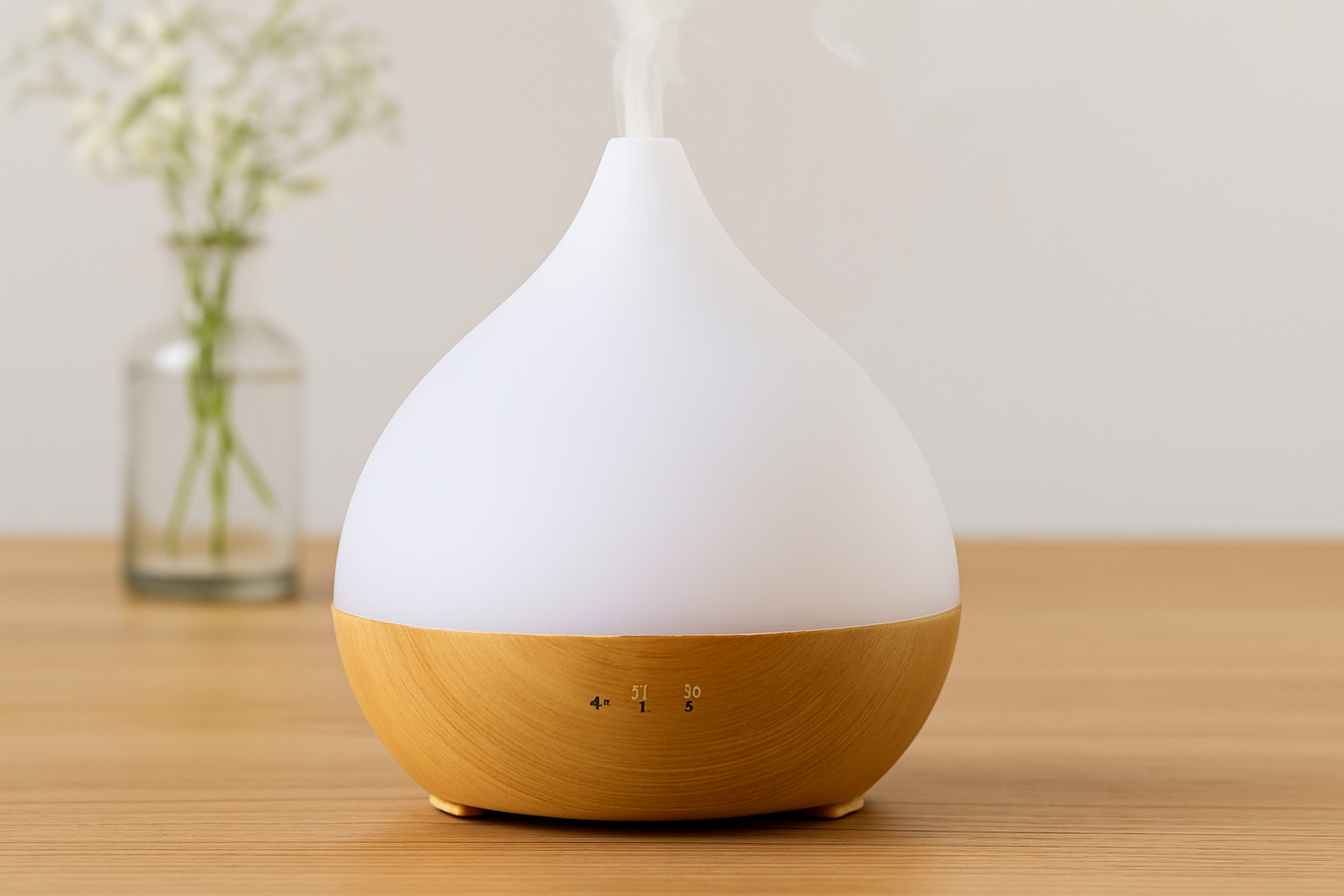
Aromatherapy Diffuser
Helps fill the bedroom with calming essential oils like lavender or chamomile for a soothing environment.
View on AmazonRisks and What to Avoid
Some aids marketed as quick fixes can be dangerous for older adults. Over-the-counter sleep medications containing diphenhydramine or doxylamine may cause grogginess, confusion, and urinary problems. Alcohol, often considered a “nightcap,” may worsen sleep quality and impair balance. Combining multiple sedatives — prescription or otherwise — without supervision also increases risk. By avoiding these unsafe practices, seniors can protect themselves from preventable falls, confusion, and medication interactions. The safest approach is one that balances effectiveness with long-term health.
Conclusion
Sleep is a foundation of senior health, yet it often becomes harder to maintain after 60. The safest path begins with simple lifestyle changes and natural aids, expands to supportive products when needed, and only turns to medication as a last resort under medical guidance. With the right approach, seniors can enjoy deeper, safer, and more refreshing sleep without unnecessary risks. For detailed reviews of recommended products, visit our Sleep Hub and explore supportive guides for seniors.
FAQ
Q: What is the safest sleeping pill for the elderly?
A: No pill is entirely safe. Low-dose doxepin or melatonin receptor agonists are sometimes prescribed, but only under professional supervision. Lifestyle and natural options should always be considered first.
Q: Are natural sleep aids safe for seniors?
A: Most natural aids, such as chamomile tea and lavender, are safe. However, seniors should check with their doctor to ensure they don’t interact with medications.
Q: What is the best sleep aid for elderly women?
A: Women may benefit from comfort-focused products like cooling pillows or weighted eye masks, in addition to herbal teas. Hormonal changes may require tailored solutions, so professional advice is recommended.
⚠️ Disclaimer: This article is for informational purposes only and is not a substitute for professional medical advice. Seniors should consult healthcare providers before starting any new sleep aid.

